16 Stars Who Switched Names—and Scored Bigger Roles
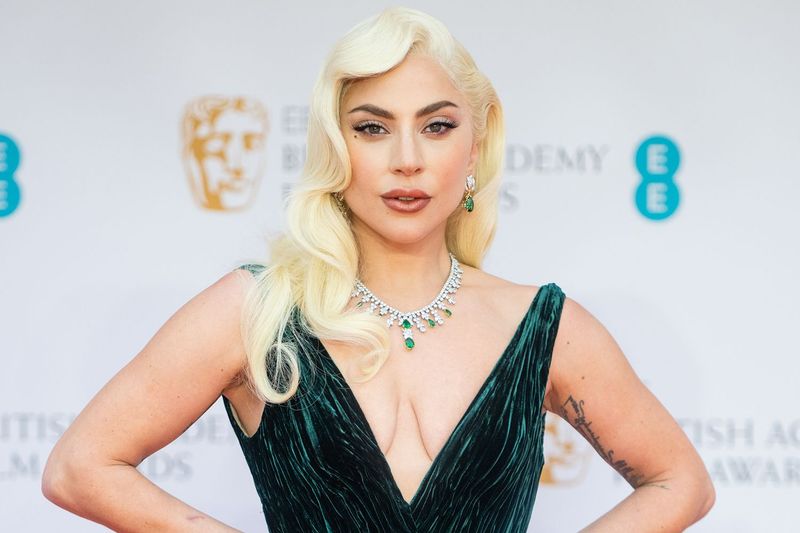
Hollywood’s brightest stars don’t always shine under their birth names. Many celebrities swap their given names for catchier, more marketable alternatives before hitting it big. Some change to avoid confusion with other actors, while others seek names that better reflect their personas or are easier to pronounce. These name changes often mark turning points in their careers, helping them land the roles that made them famous.
1. Natalie Portman (Natalie Hershlag)
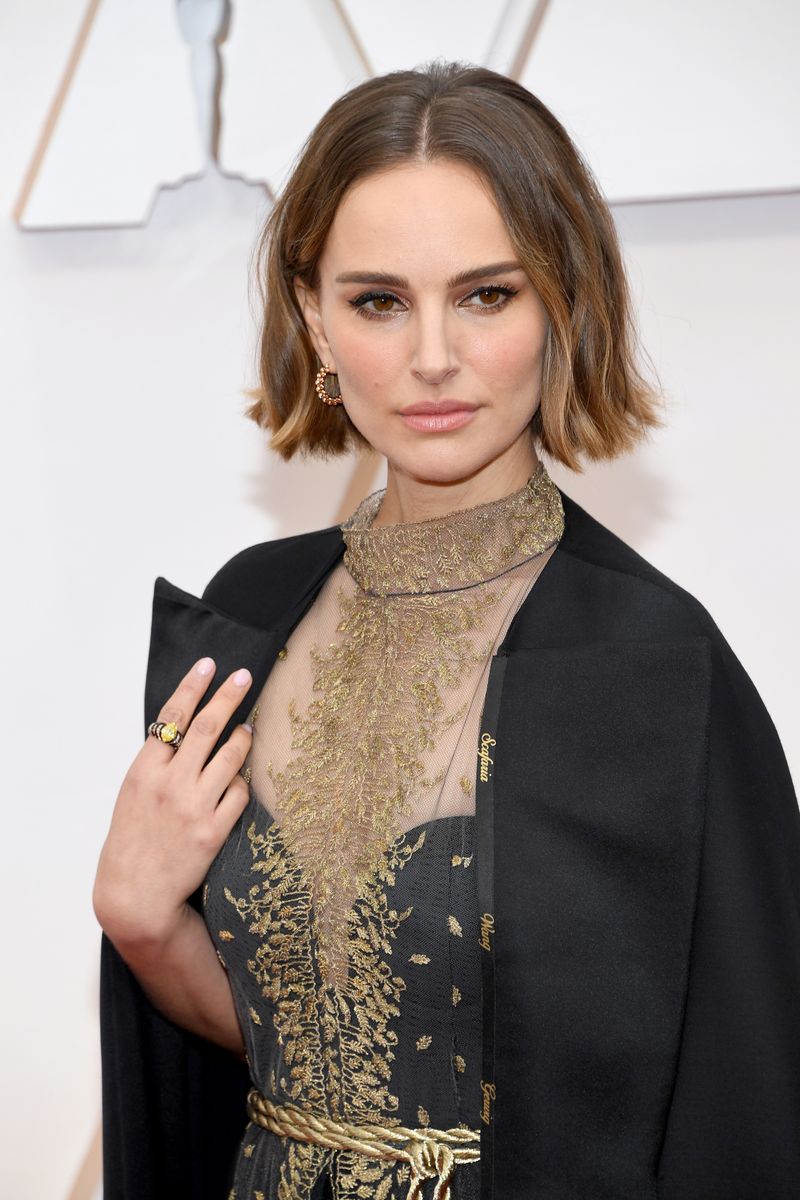
Born Natalie Hershlag, this Harvard graduate took her grandmother’s maiden name when she began acting professionally at age 12. The switch to Portman happened before her breakthrough role in “Léon: The Professional.”
Her new surname offered both privacy protection for her family and a more memorable stage presence. The name change proved fortuitous as she transitioned from child actor to serious performer.
Portman’s career soared after the switch, eventually earning her an Academy Award for “Black Swan” and iconic roles in the Star Wars prequels and Marvel films.
2. Joaquin Phoenix (Joaquin Bottom)
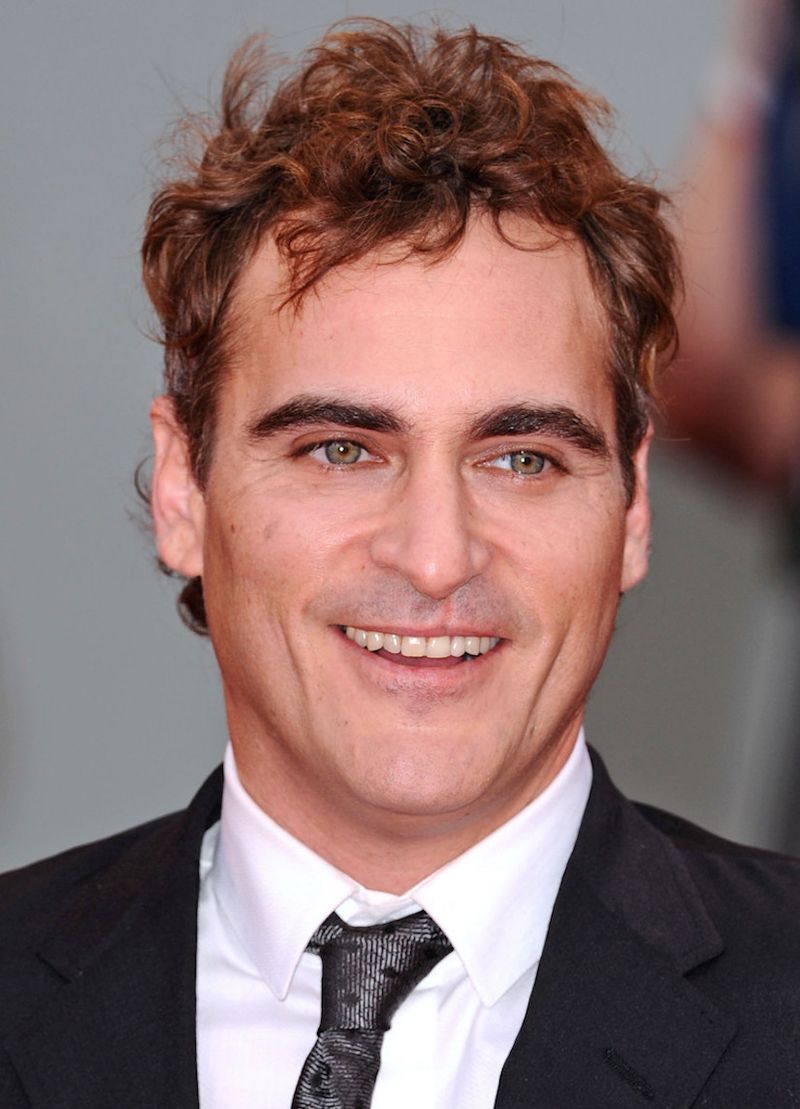
Family circumstances led to Joaquin Bottom’s transformation into Phoenix. His parents changed the family surname while involved with a religious group, symbolizing rebirth from the ashes of their previous life.
The unique surname certainly stands out in Hollywood, matching his unconventional career choices. Joaquin and his siblings (including the late River Phoenix) all adopted nature-inspired middle names.
His distinctive name became synonymous with intense method acting and character immersion, culminating in his Oscar-winning portrayal of Arthur Fleck in “Joker” – proving that rising from the Bottom to become a Phoenix was more than just symbolic.
3. Lady Gaga (Stefani Germanotta)
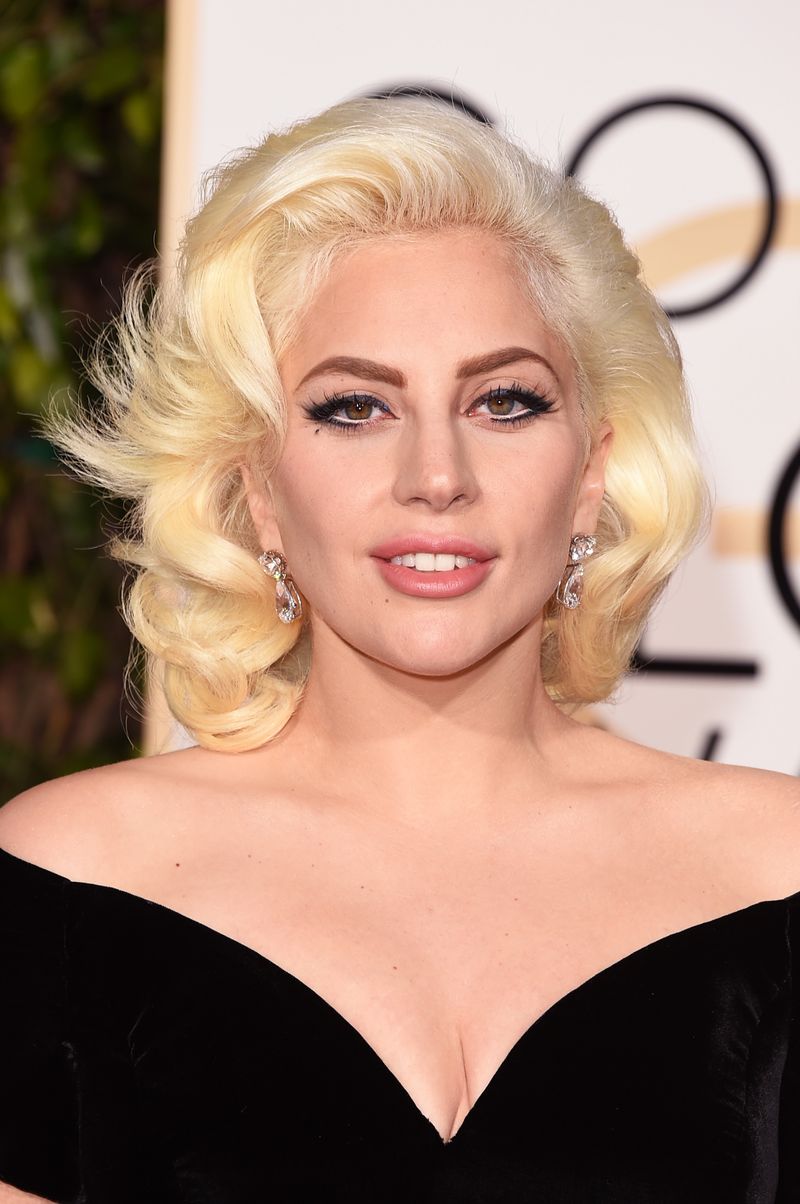
A single Queen reference—“Radio Ga Ga”—sparked a metamorphosis. Stefani Germanotta became Lady Gaga, donning a name as dazzling and daring as the persona it housed, allowing art and identity to coexist, but not collide.
Her meteoric rise began shortly after adopting the moniker, with debut album “The Fame” establishing her as pop royalty. The catchy, distinctive name matched her boundary-pushing fashion and performance art.
The name change proved brilliant for brand-building, as “Lady Gaga” became synonymous with musical innovation and reinvention, eventually helping her transition into acclaimed acting roles in “A Star Is Born” and “House of Gucci.”
4. Whoopi Goldberg (Caryn Johnson)
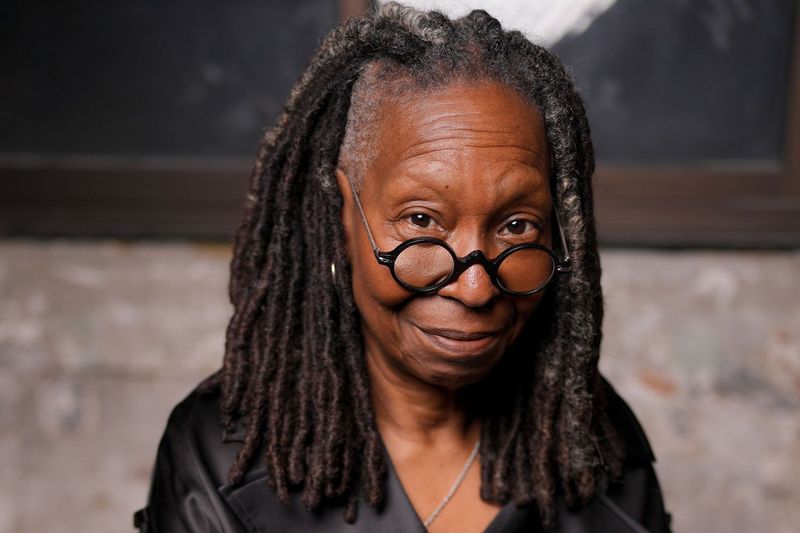
Her start in showbiz came with more than a few laughs—some unintentional. Nicknamed “Whoopi” after a whoopee cushion thanks to her backstage gassiness, Caryn Johnson embraced the humor. “Goldberg” came later, a nod to her mother’s belief that a Jewish-sounding name might help her make it in showbiz.
The memorable name suited her comedic talents perfectly. Its uniqueness helped her stand out in comedy clubs before transitioning to film.
As Whoopi Goldberg, she achieved the rare EGOT status (Emmy, Grammy, Oscar, Tony) and became the first Black woman to win an Academy Award in 50 years for “Ghost.” Her distinctive name now represents groundbreaking comedy and dramatic range.
5. Vin Diesel (Mark Sinclair)
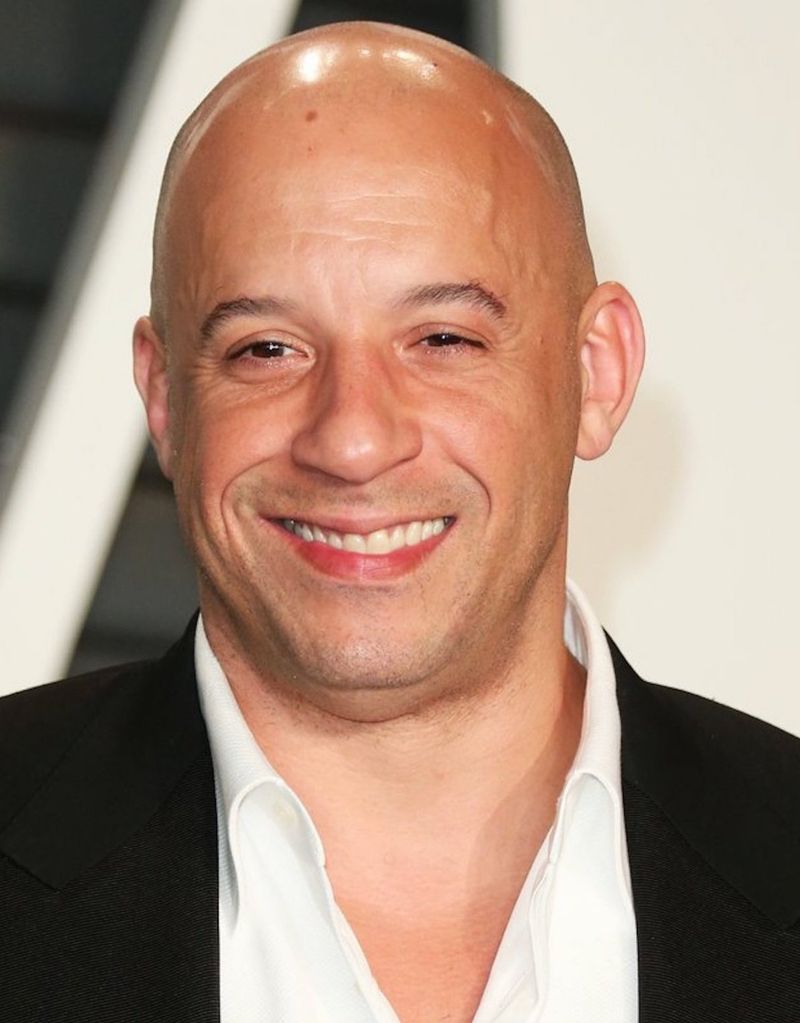
Mark Sinclair became Vin Diesel while working as a bouncer in New York City nightclubs. “Vin” came from his stepfather’s last name (Vincent), while “Diesel” was a nickname friends gave him for his energetic personality.
The muscular, machine-like name perfectly matched his physical presence and the action hero persona he would later develop. He first used it professionally when making his directorial debut with short films.
The name change preceded his breakout roles in “Pitch Black” and “The Fast and the Furious” franchise. Now, the Diesel name has become synonymous with blockbuster action films and his distinctive gravelly voice.
6. Emma Stone (Emily Stone)
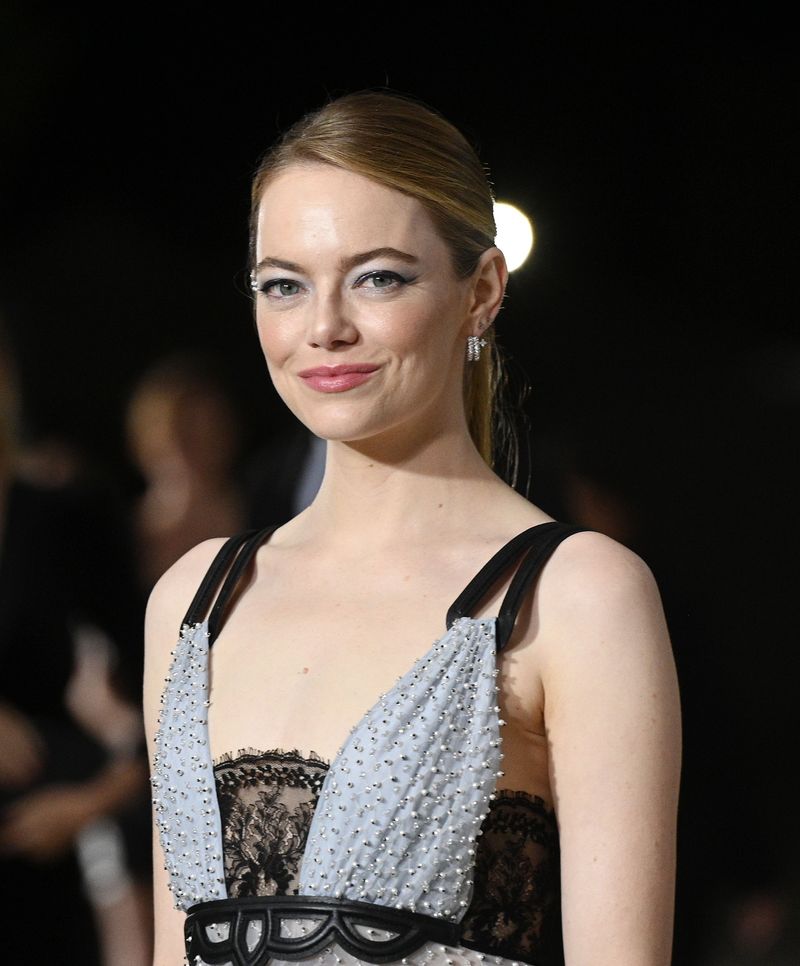
A teenage Emily Stone discovered her birth name was already registered with the Screen Actors Guild when she tried to start her career. She initially chose “Riley Stone” before settling on “Emma,” which felt more natural.
The slight name adjustment happened before her breakthrough in “Superbad” and became her professional identity. In interviews, she’s mentioned occasionally missing her birth name.
The switch worked wonders for her rising star. As Emma Stone, she went on to win an Academy Award for “La La Land” and become one of Hollywood’s most bankable actresses, proving sometimes even a small name change can make a big difference.
7. Michael Keaton (Michael Douglas)
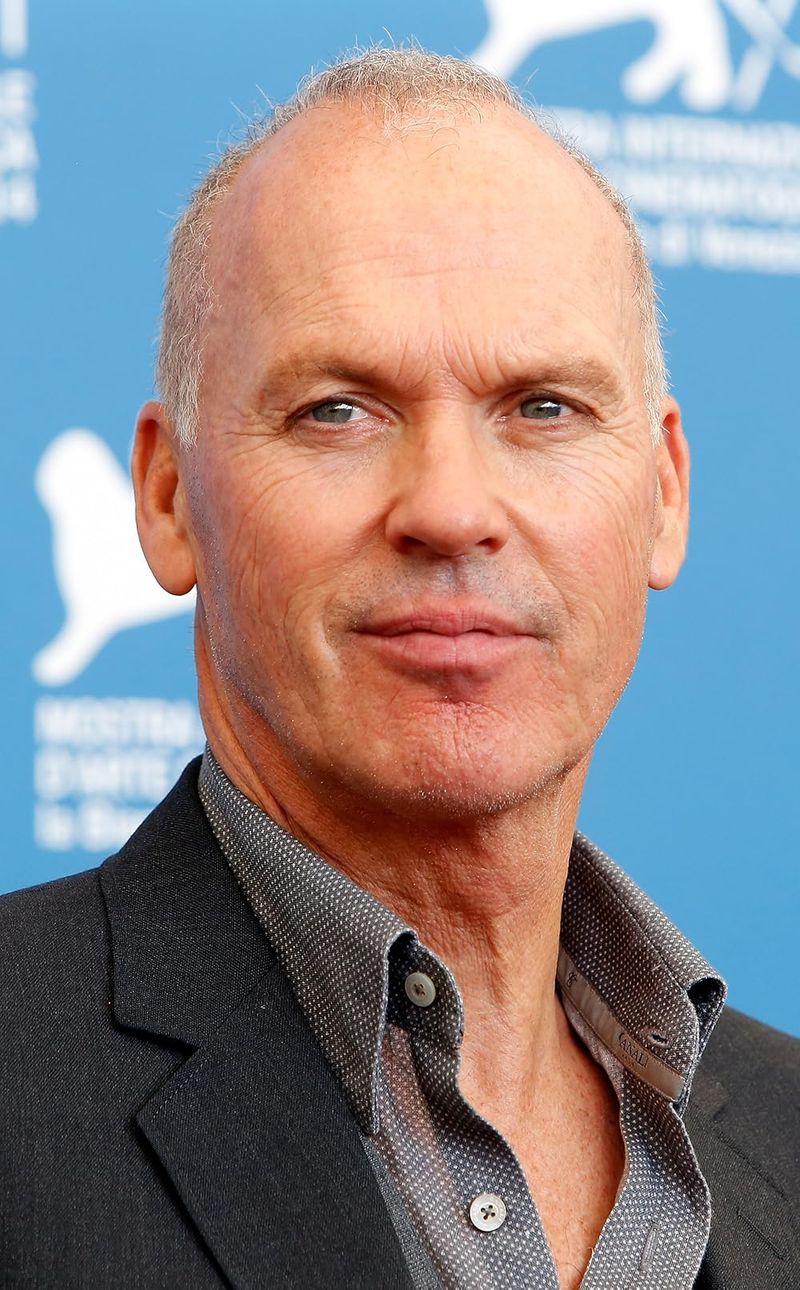
When he began acting, Michael Douglas hit a snag—his name was already taken by an established actor, the son of Kirk Douglas. To carve out his own identity, he chose a new last name: Keaton.
Contrary to popular belief, he didn’t choose it because of silent film star Buster Keaton. He reportedly saw the name in a newspaper and liked how it sounded.
The name change preceded his comedic breakthrough in “Night Shift” and “Mr. Mom,” followed by his iconic role as Batman. Keaton’s career flourished under his new identity, eventually earning Oscar nominations and cementing his place in Hollywood history.
8. Jamie Foxx (Eric Bishop)
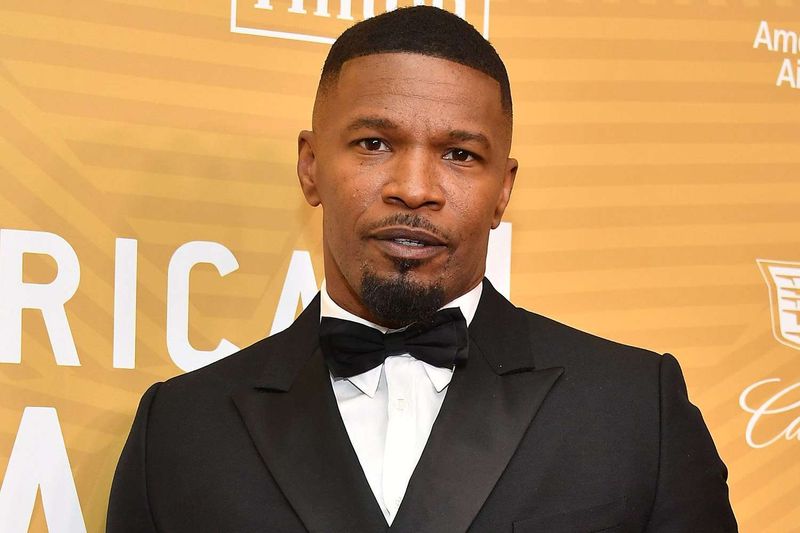
Success in comedy often starts before the punchline. Eric Bishop knew this—and chose the name “Jamie Foxx” to sidestep bias. By using a gender-neutral alias, he increased his odds of getting stage time in a male-dominated industry.
The “Foxx” surname honored comedian Redd Foxx, whom he greatly admired. His calculated name change helped him get stage time and develop his comedic voice.
The new identity served him well as he transitioned from comedy to serious acting. As Jamie Foxx, he won an Academy Award for portraying Ray Charles in “Ray” and established himself as a multi-talented performer in music, comedy, and drama.
9. Nicolas Cage (Nicolas Coppola)
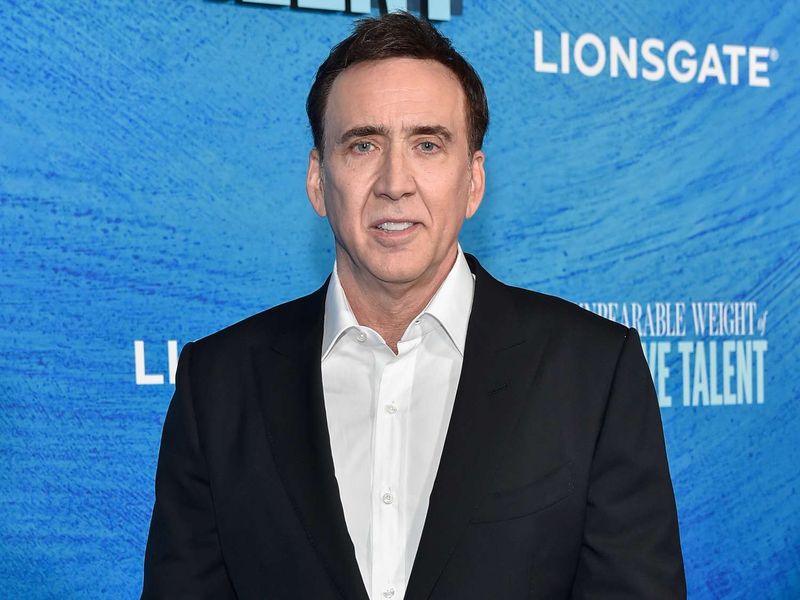
Born into Hollywood royalty as Francis Ford Coppola’s nephew, Nicolas Coppola wanted to make it on his own merits. He chose “Cage” inspired by Marvel Comics character Luke Cage and composer John Cage.
The name change happened early in his career, before his small role in “Fast Times at Ridgemont High.” He feared nepotism accusations would follow him if he kept the famous family name.
As Nicolas Cage, he developed his unique acting style and won an Oscar for “Leaving Las Vegas.” His eclectic career choices and intense performances made the Cage name synonymous with unpredictable brilliance, completely separate from the Coppola legacy.
10. Marilyn Monroe (Norma Jeane Mortenson)
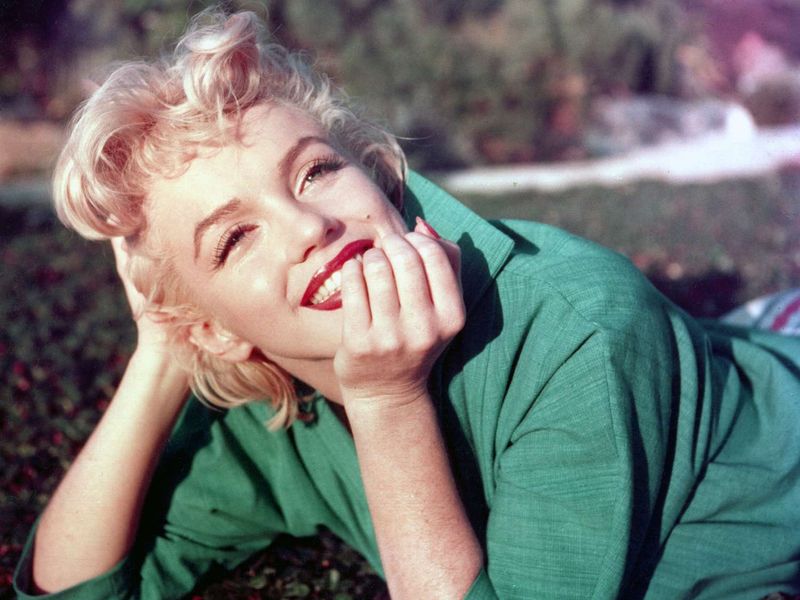
Behind the silver screen’s brightest star was Norma Jeane Mortenson, reborn as Marilyn Monroe. Studio heads chose “Marilyn” after a famed Broadway beauty and married it with Monroe, a nod to her family roots.
The name change coincided with her dramatic transformation – dyeing her brown hair platinum blonde and adopting the breathy voice and bombshell persona. Studio publicity claimed she was discovered working in a factory, crafting her rags-to-riches narrative.
The manufactured name became inseparable from her screen persona in classics like “Some Like It Hot” and “Gentlemen Prefer Blondes.” Marilyn Monroe became larger than life, while Norma Jeane represented the vulnerable woman behind the glamour.
11. Marilyn Manson (Brian Warner)
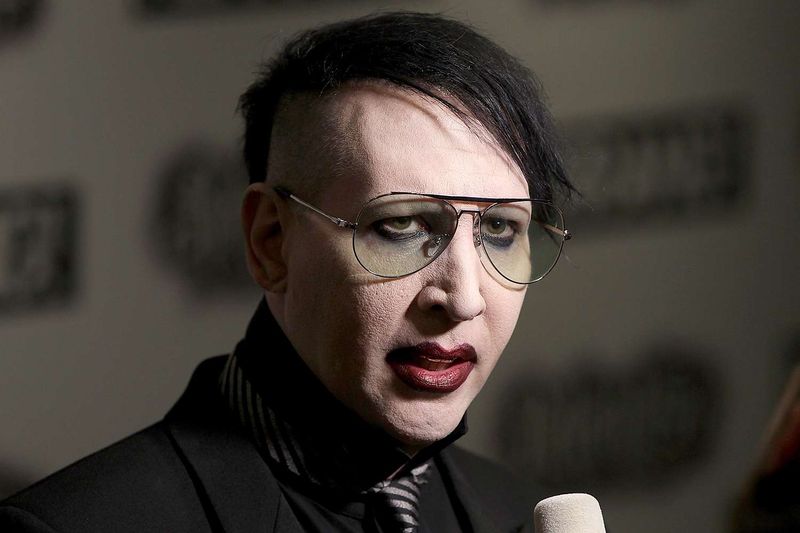
Brian Warner crafted his stage name by combining two American cultural icons – Marilyn Monroe and Charles Manson. This deliberate juxtaposition of symbol and serial killer perfectly encapsulated the shocking duality he wanted his music to represent.
The name became the foundation of his entire artistic persona. His band members also adopted similar celebrity-killer combinations, though Warner’s was the one that stuck in cultural consciousness.
As Marilyn Manson, he became the controversial face of industrial metal music in the 1990s. The provocative name helped generate the moral panic and media attention that fueled his rise to fame with albums like “Antichrist Superstar.”
12. Elton John (Reginald Dwight)
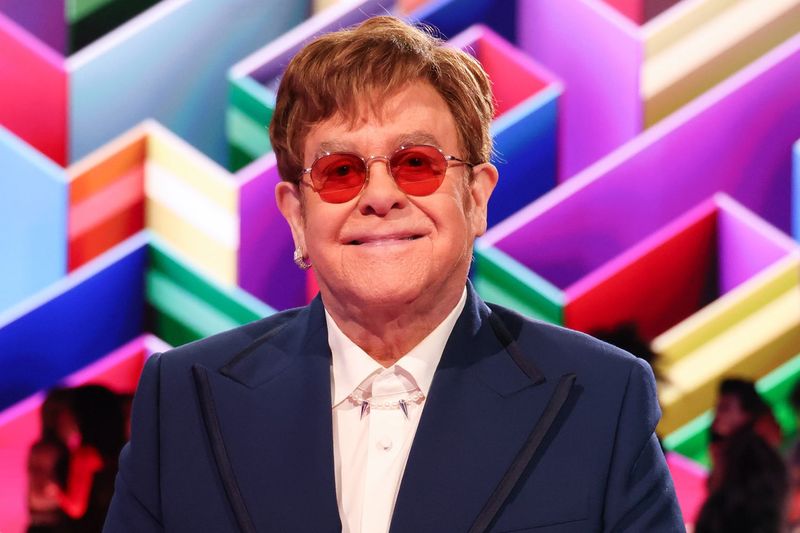
At the start of his musical journey, Reginald Kenneth Dwight reinvented himself as Elton Hercules John. He paid homage to two heroes from his early days with Bluesology—“Elton” from saxophonist Elton Dean and “John” from Long John Baldry.
The flamboyant new name matched his evolving stage persona. He legally changed it in 1972, adding “Hercules” as his middle name (not after the mythological hero, but after a horse on British sitcom “Steptoe and Son”).
The reinvention worked spectacularly. As Elton John, he became one of music’s most successful artists, with his name now synonymous with piano rock, elaborate costumes, and philanthropic work.
13. Judy Garland (Frances Gumm)
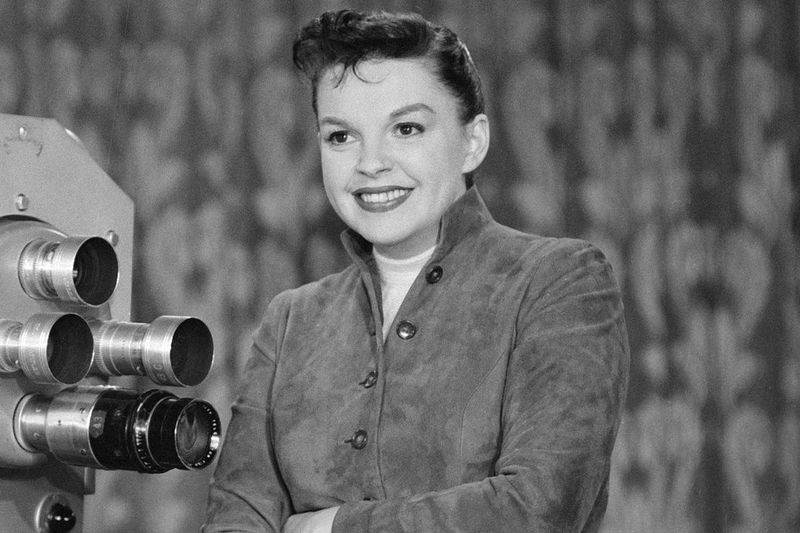
Frances Ethel Gumm performed with her sisters as “The Gumm Sisters” until a theater marquee accidentally listed them as “The Glumm Sisters.” This unfortunate typo prompted a name change to “The Garland Sisters,” with Frances adopting “Judy” after a popular song.
The transformation happened during her early MGM days. Studio head Louis B. Mayer thought “Garland” sounded more appealing than “Gumm,” which could invite teasing.
The name change preceded her casting in “The Wizard of Oz” at age 16. As Judy Garland, she became one of Hollywood’s brightest stars, though her tragic personal struggles later overshadowed her remarkable talent and the innocent image her new name helped create.
14. Kirk Douglas (Issur Danielovitch)
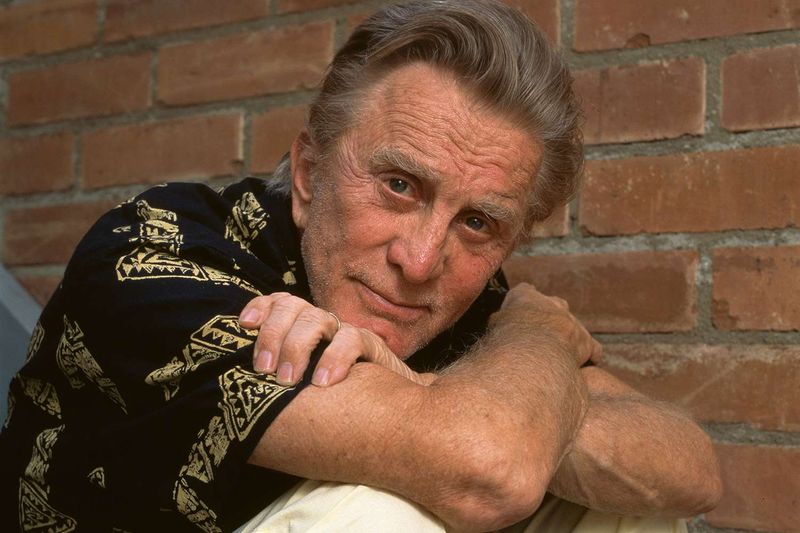
From Issur Danielovitch to Izzy Demsky, and ultimately Kirk Douglas—each name marked a chapter in a journey shaped by heritage, hope, and reinvention in America.
The name change reflected both the era’s antisemitism and Hollywood’s preference for Anglicized names. He chose “Kirk” for its strong, commanding sound and “Douglas” for its distinguished feel.
As Kirk Douglas, he became one of Hollywood’s leading men in the 1950s and 1960s. His breakthrough in “Champion” followed by iconic roles in “Spartacus” and “Paths of Glory” established him as a legendary star under his chosen name.
15. Rock Hudson (Roy Fitzgerald)
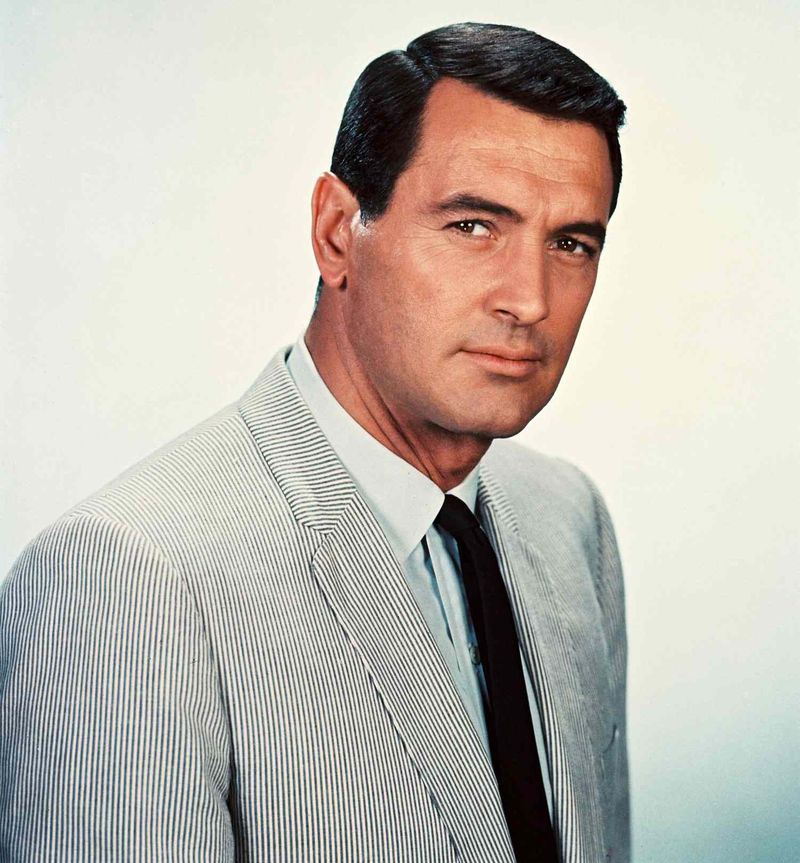
When it came to names, Henry Willson was part magician. Combining the Rock of Gibraltar’s power with the grace of the Hudson River, he rechristened Roy Fitzgerald as the iconic Rock Hudson.
The hyper-masculine name perfectly suited the tall, handsome actor’s screen persona. It helped craft his image as the quintessential leading man in 1950s romantic comedies.
The manufactured name became synonymous with classic Hollywood charm in films like “Pillow Talk” opposite Doris Day. Tragically, Hudson became one of the first major celebrities to die from AIDS-related complications, bringing unprecedented attention to the epidemic and revealing the complex reality behind his carefully constructed public image.
16. Lauren Bacall (Betty Perske)
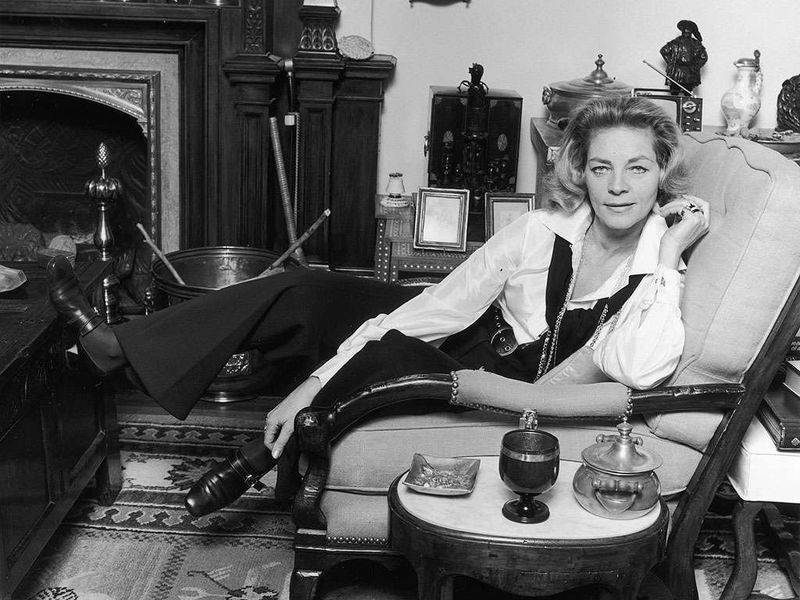
Under the guidance of director Howard Hawks and Warner Bros., Betty Joan Perske became Lauren Bacall. She borrowed her mother’s maiden name, “Bacal,” and added an extra “l” to ensure it was pronounced just right.
Hawks personally coached her on lowering her naturally high voice to create the sultry, distinctive “Bacall purr” that became her trademark. The sophisticated new name matched the smoky-voiced femme fatale persona he crafted for her debut in “To Have and Have Not.”
The rebranding worked brilliantly. As Lauren Bacall, she became an instant star opposite Humphrey Bogart, with their on-screen chemistry leading to real-life marriage and one of Hollywood’s most famous love stories.

Comments
Loading…